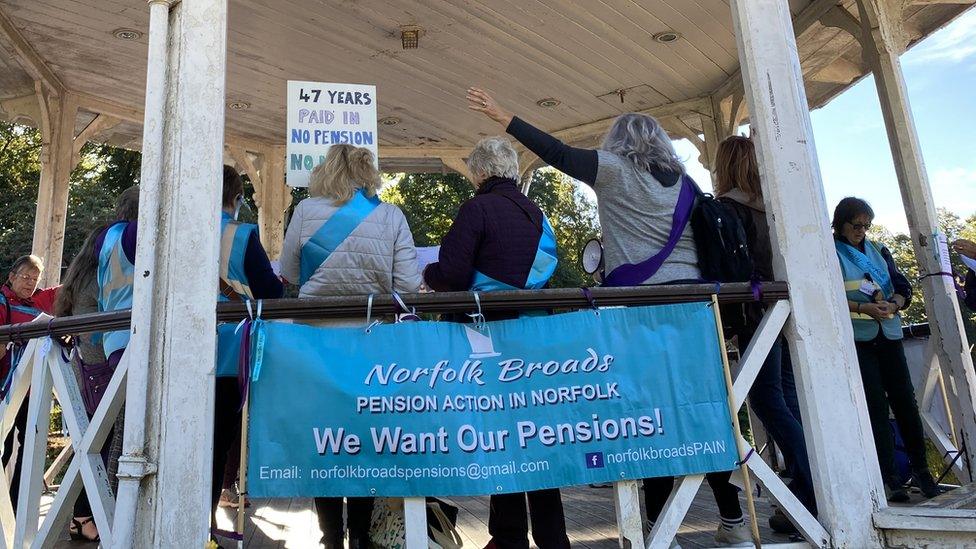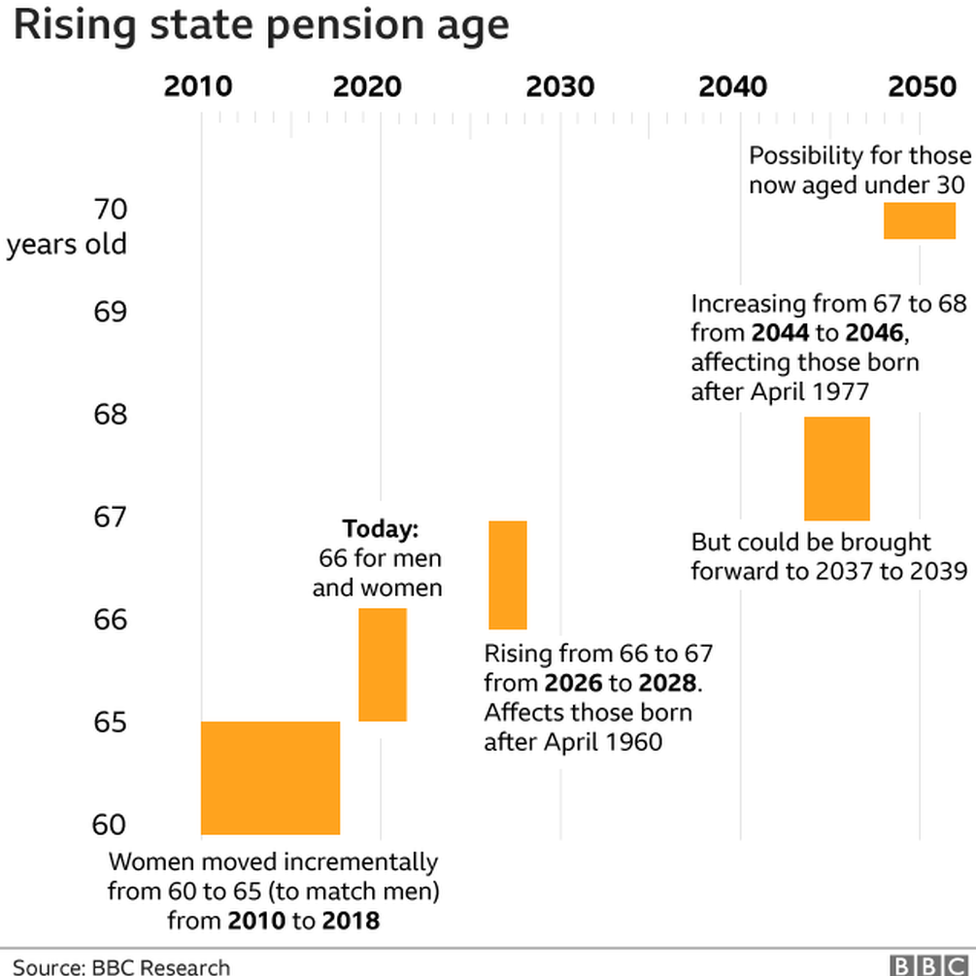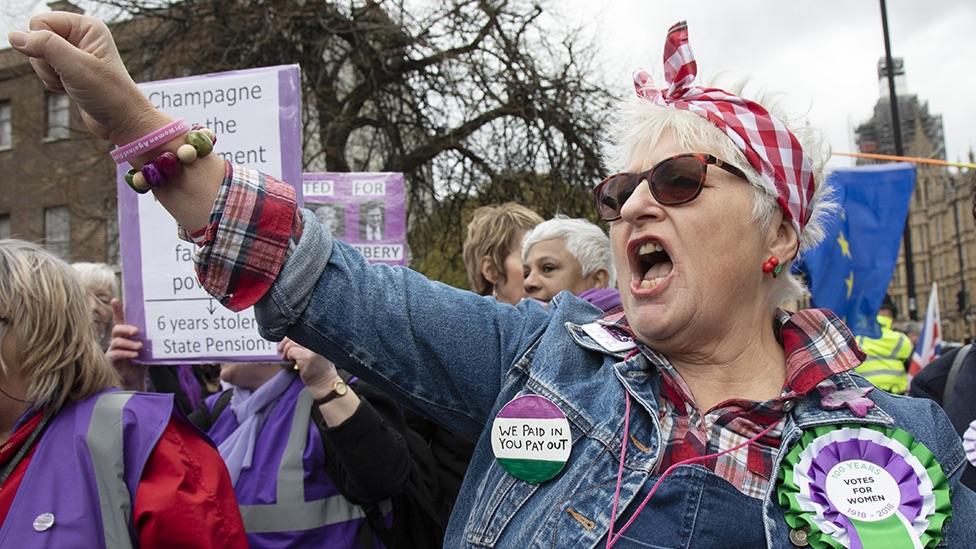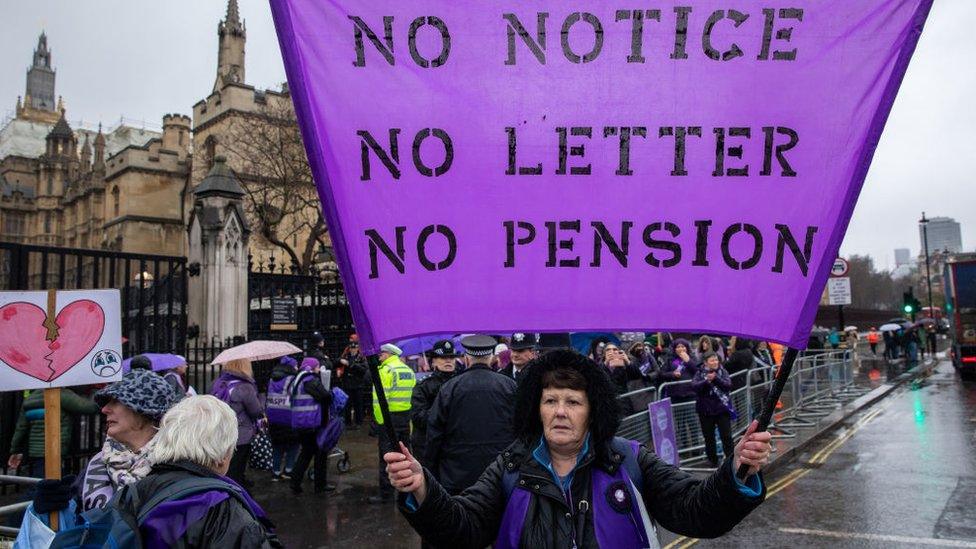Women born in 1950s campaign in Norwich over pension rights
- Published

Pension Action in Norfolk held its rally at Norwich's Chapelfield Gardens
Women born in the 1950s who have waited an extra six years for their state pension have been "banging the drum" against the "unfair" changes.
Both men and women can now claim their state pension at the age of 66. But women born in the 1950s had long expected to retire at the age of 60.
Pension Action in Norfolk held its rally at Norwich's Chapelfield Gardens.
The government said it decided more than 25 years ago to make the state pension age the same for men and women.
Lynn Nichols, one of the organisers of the protest, said: "Our ladies are having to work when they are in ill-health and struggling to carry on.
"It will gradually go up to 67, it will go up to 68 and the possibility is that it will go up higher."

Women born in the 1950s had expected to retire at the age of 60
She added: "Unless we try to do something to stop it now it's going to be hard for the youngsters; as you get older it's physically harder to carry on."
Another campaigner told BBC Radio Norfolk: "We've got to keep banging the drum to highlight the plight of us, otherwise it will carry on for younger generations, it's not fair."

The rising state pension age

From 1948, for more than 60 years men received their state pension at 65 and women at the age of 60.
But over the years it was argued that the difference was unfair, as women had a longer life expectancy than men.
So under the 1995 Pensions Act a timetable was drawn up to equalise the age at which men and women could draw their state pension.
The plan was to raise the qualifying age for women to 65 and to phase in that change from 2010 to 2020.
But the coalition government of 2010 decided to accelerate that timetable, arguing that the state pension was becoming unaffordable.
Under the 2011 Pensions Act the new qualifying age of 65 for women was brought forward to 2018.
The qualifying age for men and women was raised to 66 in 2020.
Those changes were expected to save £30bn.
Source: BBC Reality Check

A spokesman for the Department for Work and Pensions (DWP) said: "The government decided over 25 years ago that it was going to make the state pension age the same for men and women as a long-overdue move towards gender equality.
"Raising state pension age in line with life expectancy changes has been the policy of successive administrations over many years."
In July, the Parliamentary Ombudsman ruled government officials were too slow to tell many women they would be affected by the rising state pension age.
However, the ombudsman has no power to refund "lost" pensions or recommend anyone receives their state pension any earlier than the current law allows.
DWP said its actions had been upheld by both the High Court and Court of Appeal, and the Supreme Court had refused the claimants permission to appeal.

Find BBC News: East of England on Facebook, external, Instagram, external and Twitter, external. If you have a story suggestion email eastofenglandnews@bbc.co.uk, external
Related topics
- Published20 July 2021

- Published18 December 2024
